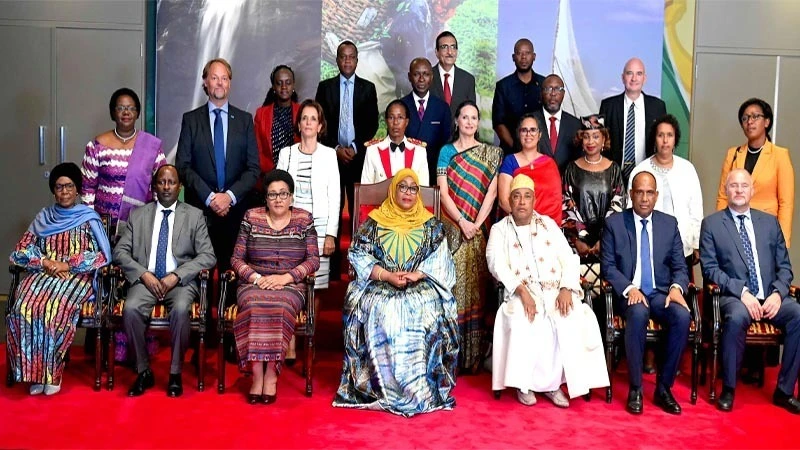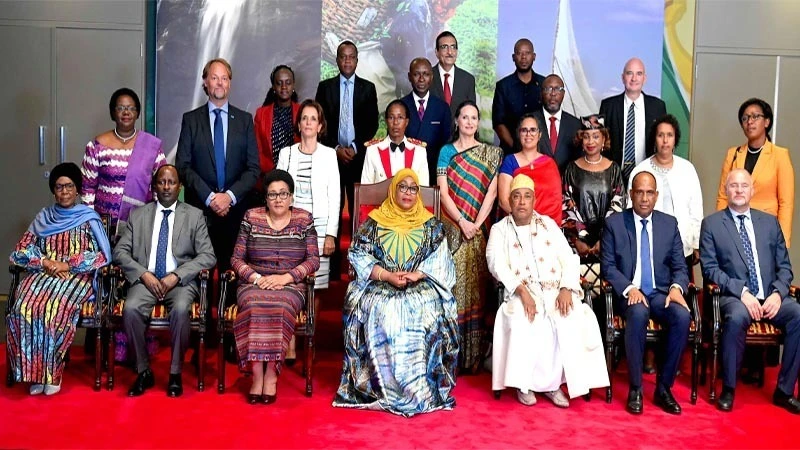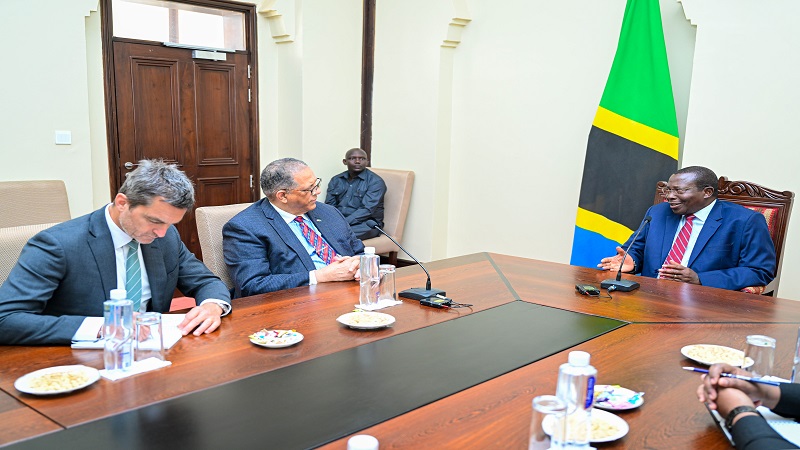2025: 44 years since JK Nyerere’s famous ‘sherry party’ speech to foreign diplomats

THERE is an expression that ‘every cloud has a silver lining,’ which basically indicates seeing light at the edge of any crisis. A related expression is a quasi-theoretical formulation that when the old order is pregnant with a new order, it may as well go away peacefully if it has the intelligence to do so, and otherwise, force is the midwife of history. So the issue is to view ‘force’ that is being felt, applied and destabilizing Africa in this order of things.
The first expression indicates that chaos will not just persist indefinitely on the continent, as there is reasonable chance that the key issues will be grasped as time goes on, despite that Africa is fairly resilient in its way of doing things. Outlines of probable solutions were all on the table at the end of the 1970s, especially with the rise of a conservative troika in the West, plus a like-minded papacy, in the years 1979 to 1981, signaling vast change.
African countries were being asked at the start of the 1980s to dismantle public sector dominated economies, precisely the way Britain moved to change things under hardliner conservative Margret Thatcher, who served for 11years as premier, from 1979.
One of her first actions in office was to stop listening to the white minority lobby in Salisbury (later Harare), called Lancaster House meetings to iron out a constitution, for procedural delivery of independence. Zimbabwe became free by 1980, on that basis.
Africa was coming under pressure from the Bretton Woods institutions, namely the International Monetary Fund and the World Bank, as they were hewn out of trans-Atlantic post-war institution building consultative meeting between the United States and Great Britain in 1944.
Critics will argue that this pressure was academic in its outlook, of the sort ‘one size fits all’ formulation, or ‘what is good for the goose is good for the gander.’ They resisted the pressure to apply the same economic policy solutions in their economies like the UK under Thatcher, or generalized deregulation in the US under conservative Ronald Reagan who took office early 1981, demanding broad changes.
This situation was sort of turning point in the overall political philosophy of Tanzanian president Julius Nyerere, for there was now less room for international platforms where socialism and democracy were being presented in tandem as in the mid-1960s to the mid-1970s. The first and second oil price shocks in 1973 and 1974 had shaken Tanzanian economic resilience to the core, and with the Uganda war, the situation was visibly critical. Pressure was rising to skip socialism, restore the status quo ante.
Nyerere led Africa’s response to this pressure, shifting from a principled stand on socialism as such to economic nationalism, in that Africa had the right to choose economic policies it wants, and have also a right to be assisted by the IMF, being loaned funds at concessionary terms, as members of the IMF. Nyerere told a diplomatic sherry party early January 1981 that the IMF was shifting from being an ‘international monetary fund’ to becoming an ‘international ministry of finance.’ The diplomats extensively interrogated themselves, while Mwalimu carved out a global audience that fused into the ‘occupy’ movement by the late 1990s, pushing changes to end privatization ‘conditionality.’
Surprisingly enough, while Nyerere’s followers upon his 1981 speech as it spread among Western universities and supported by established socialist critics of the IMF and the World Bank, among adversaries of the US and UK conservative leaders in particular, the retired president, towards the end of his life, was having a rethinking. He gave a completely different impression to his view of Africa’s future in a vital last major public appearance, speaking to the South African legislature in October 1997. He repeated those remarks at a UDSM event two months later, when marking 40 years of Ghana’s independence, as a leadership event.
He appealed for an economic union between Africa and Europe so that Africa can develop, as experience had shown that fusing poor and rich economies leads to a redistribution of the capital. Africa would gain access to capital from Europe as well being assured of its markets, a position that the European Union was to actually suggest a few years later, but Nyerere’s later remarks were unknown to the public. They weren’t circulated or debated, so Tanzania again led East Africa in delivering a resounding ‘no.’
Close to 25 years later these antecedents to the current ‘compact; at the political and economic level are worth revisiting, as one after another African countries explode in this other electoral result contest, cool down and prepare to do so again in future. The Nyerere of 1981 won the day and to this day IMF and the World Bank don’t demand that the private sector be overhauled but it is hard to say they have overall solutions. Quite like African states, they push incremental reforms of this and that sort, which largely work, intercepted here and there by youth explosions, etc.
Yet it is the Nyerere of 1997, whom those in authority and in academia chose to ignore, who actually showed the way for the future of Africa, but as it is the case with most real prophecies, it takes anywhere from 40 to 70 years for a fundamental projection to be realized. Africa is sinking under the weight of its own population, which the land cannot hold (and feed, clothe or house, let alone access medicare). Their youth, in cities, explode.
There is no capital flowing in for peasants to hand their land to do small business en masse, thus needing little patches of land while agriculture is modernised and food is cheapened. This occasions lower wages in relation to current living wage demands and thus facilitates industry, absorbing youths abandoning rural areas. As it was the case in Europe or America, and even largely in Asia or South America, economic ruin and the political search for a ‘witch’ eventually leads to vast reform and social stability.
Top Headlines
© 2025 IPPMEDIA.COM. ALL RIGHTS RESERVED

























